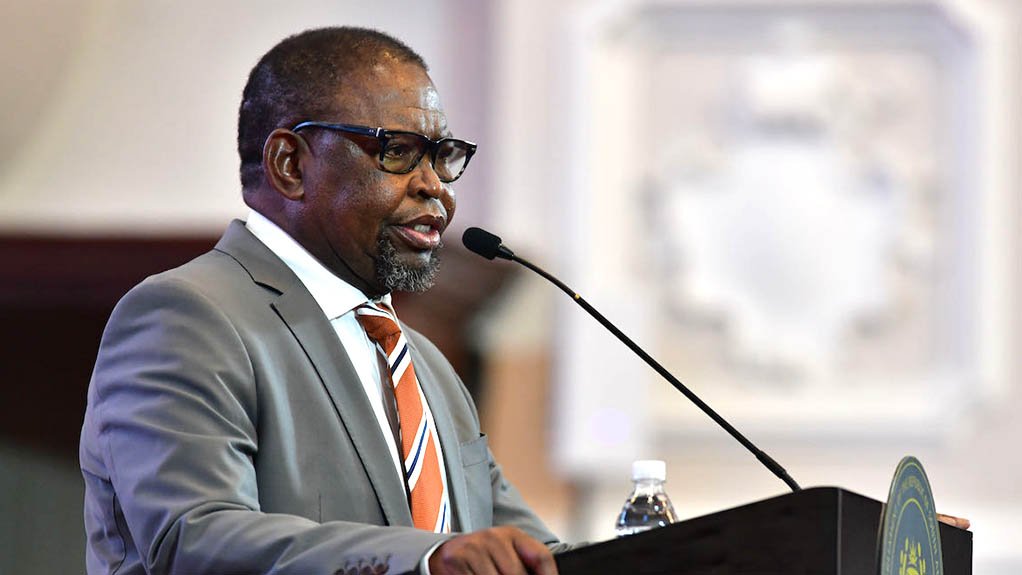Enoch Godongwana needs to conjure an annual budget that balances spending pressures stemming from this year’s elections with the South African National Treasury’s commitment to stabilise its finances.
The rabbit in the fedora-wearing finance minister’s hat is a potential drawdown from the nation’s about R500-billion of contingency reserves.
Godongwana will present his budget on Wednesday. It comes in the same week that President Cyril Ramaphosa is likely to declare the date for the elections. Opinion polls show the ruling African National Congress (ANC) will lose its national majority for the first time since it came to power three decades ago.
Because of the election, “this is not the year for common sense or being rational” in the budget, said independent economic analyst Bonke Dumisa. “Otherwise all these predictions that the ANC is going to lose power are going to be worse.”
The minister is facing pressure to reflect the ANC’s spending priorities, he said.
Those include Ramaphosa’s pledge earlier this month to expand and improve a R350 a month social grant for the unemployed, sign into law a National Health Insurance plan and tackle a logistics crisis that’s hobbling exports.
Transnet, which oversees the freight-rail system and the nation’s main ports, is among a number of debt-ridden State enterprises looking for multibillion rand bailouts from the Treasury.
Unlike previous elections, which have had little impact on fiscal policy, this year’s vote presents new risks, according to Keabetswe Mojapelo, macro-economist at Rand Merchant Bank.
“There has been an increase in social spending aimed at pleasing the masses,” including fee-free higher education that lacks a viable financing mechanism, Mojapelo said. “Much of this spending is driven by political motives and populism, rather than sound economic principles.”
The spending pressures have strained South Africa’s public finances. And while the Treasury has flagged potential new tax measures to raise revenue, that will be a tough task with consumers under pressure and the commodity boom that boosted government income in 2021 and 2022 having now faded.
As a result of the pressures, debt levels are expected to continue rising and may peak later and at a higher level than the Treasury’s November forecast of 77.7% of gross domestic product in 2025-26.
That’s where the Gold & Foreign Exchange Contingency Reserve Account, or GFECRA, comes in. The account, which is managed by the central bank on behalf of the Treasury, holds about R500-billion in unrealised profits incurred through changes in the value of the rand.
“Barring a deployment of proceeds of the GFECRA accounts to reduce debt, we see the total debt stock rising from 71% of GDP in FY2022-23 to an estimated 75% in FY2023-24 and peaking at 78% in 2027, before coming back to 76% by 2030-31,” Barclays analyst Michael Kafe said in a research note.
The profits in the GFECRA exist on paper unless they are realised by selling the underlying assets. Central bank Governor Lesetja Kganyago has warned that dipping into the nation’s reserves may leave the country more vulnerable to future exogenous shocks.
In December, the Treasury was considering withdrawing as much as half of the amount available.
If the drawdown is subject to strict terms and conditions, and the money put to good use — such as reducing the budget deficit or debt — it may be welcomed by investors.
“If tapped, it means we will have to borrow less to fund our deficit and will give some short-term relief,” said Farzana Bayat, fixed income portfolio manager at Foord Asset Management. “They won’t have to increase nominal bond issuance which the bond market will view favorably in the short term.”
If it doesn’t resort to using GFECRA, the Treasury may need to issue more rand-denominated debt and increase its weekly fixed-rate bond supply to meet its funding needs, HSBC economist David Faulkner said.
Still, using “GFECRA could relax the budget constraint, and in doing so potentially weaken the discipline needed to make tough policy choices and achieve longer term fiscal consolidation,” Faulkner said. “We remain cautious that without stronger policy steps to rein in spending, or structural reforms to boost growth, South Africa’s fiscal outlook remains unsustainable with debt levels unlikely to stabilise.”
EMAIL THIS ARTICLE SAVE THIS ARTICLE
To subscribe email subscriptions@creamermedia.co.za or click here
To advertise email advertising@creamermedia.co.za or click here











